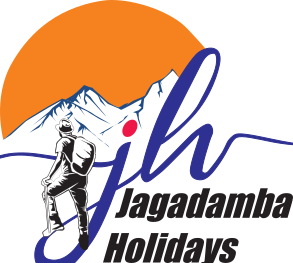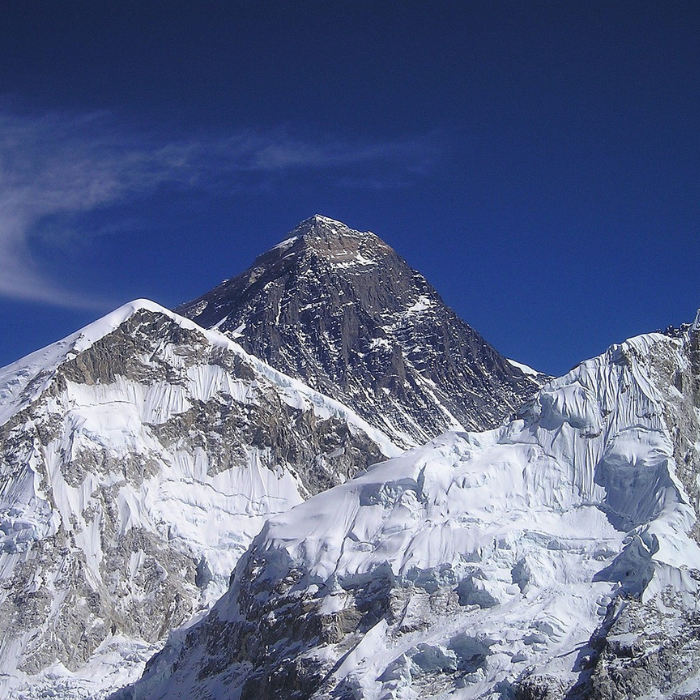Everest Base Camp Trek Cost
Introduction
Have you ever dreamt of trekking to the foot of the world's tallest mountain? The Everest Base Camp trek is an iconic adventure that beckons travelers worldwide. But before you start packing your bags, it's important to understand the Everest Base Camp trek cost. This cost can vary depending on your travel style and desired level of comfort. This blog post will break down the different expenses involved and offer tips to help you budget effectively for your dream Everest Base Camp adventure.
The majestic Everest Base Camp trek, culminating at the foot of the world's highest mountain, is a dream adventure for many. But before you lace up your hiking boots, it's crucial to understand the Everest Base Camp trek cost. This trek varies depending on your travel style and desired level of comfort.
Here, we'll break down the costs associated with this incredible expedition, helping you budget effectively and plan your dream Everest Base Camp adventure.
Breakdown of Everest Base Camp Trek Costs
The Everest Base Camp trek cost encompasses several components:
- Permits & Fees:
- Sagarmatha National Park Permit: Grants entry into the Sagarmatha National Park, which surrounds Everest Base Camp.
- Khumbu Pasang Lhamu Rural Municipality Permit: Supports local communities in the Everest region.
- Transportation:
- Flights to Lukla: Lukla, the gateway to Everest Base Camp, is accessible by plane. While scenic, these flights can be expensive due to weather conditions in the mountain region.
- Ground Transportation Options: You can opt for a trek to Lukla from lower areas, which can be a budget-friendly alternative but adds extra days to your itinerary.
- Accommodation:
- Tea Houses vs. Lodges: Tea houses are basic guesthouses with dorm-style rooms or shared accommodations. Lodges offer more comfort with private rooms and en-suite bathrooms.
- Budget vs. Luxury: The level of amenities you choose will significantly impact the cost.
- Food:
- Typical Costs & Options: Food on the trek is generally simple but filling. You can expect typical Nepali fare with options like dal bhat (lentil soup and rice). Budget for fixed meals offered by tea houses/lodges.
- Guide & Porter Services:
- Hiring a guide is highly recommended, especially for safety reasons and navigation. Porters can help carry your backpack, lightening your load. Factor in tipping for their services as well.
Cost Spectrum: Budgeting for Your Everest Base Camp Trek
Everest Base Camp trek costs can range from approximately $1,200 to $3,000 per person. Here's a general cost breakdown based on different budgets:
- Budget Option ($850 - $1,050): Expect dormitory-style accommodation in tea houses, basic meals, and shared bathroom facilities. You might need to rent some trekking gear.
- Standard Option ($1,250 - $1,500): This offers tea house accommodation with private rooms (shared bathrooms), all meals included, and potentially a guide.
- Luxury Option ($2,400 - $2,600): Enjoy private lodges with en-suite bathrooms, gourmet meals, personalized service, and possibly a guide and porter team.
Additional Cost Considerations
On top of the core trek expenses, factor in:
- International Flights to Nepal
- Nepal Visa
- **Travel Insurance (highly recommended due to the altitude) **
- Trekking Gear Rentals (if needed)
- Souvenirs & Personal Expenses
Saving Strategies for Your Everest Base Camp Trek
Here are some ways to save on your Everest Base Camp trek cost:
- Booking During Off-Season: The peak season (March-May & September-November) coincides with the best weather conditions but comes with higher prices. Consider the shoulder seasons (February & June) for potentially lower costs.
- Group vs. Solo Trekking: Group treks can be cheaper due to shared costs. However, solo travel offers more flexibility.
- Choosing Tea Houses over Lodges: Opt for tea houses for a more basic but affordable experience (budget option).
- Packing Efficiently to Minimize Gear Rentals: Rent only essential gear you don't already have.
Conclusion: Choosing the Everest Base Camp Trek Cost that Fits You
The Everest Base Camp trek cost can be tailored to your budget and desired experience. By understanding the breakdown of expenses and exploring cost-saving strategies, you can plan your Himalayan adventure without breaking the bank.
Whether you crave a basic yet rewarding adventure or a luxurious expedition with top-notch amenities, there's an Everest Base Camp trek cost option waiting for you. Remember, this trek is an unforgettable journey, and the memories you create will be priceless.
Start planning your Everest Base Camp adventure today! Reach out to reputable trekking companies for quotes that fit your budget and preferences.
Everest Base Camp Trek Cost: Frequently Asked Questions (FAQs)
Here are some of the most frequently asked questions regarding the Everest Base Camp trek cost:
1. What's the average cost of an Everest Base Camp Trek?
The average cost ranges from $1,200 to $3,000 per person. This depends heavily on your chosen experience (budget, standard, or luxury) and the duration of the trek.
2. Is it cheaper to trek solo or with a group?
Group treks can be more economical because some costs are shared. However, solo travel offers more flexibility.
3. Are there any hidden costs I should be aware of?
While the core trek expenses are covered, remember to factor in:
- International Flights to Nepal
- Nepal Visa
- Travel Insurance (highly recommended due to the altitude)
- Trekking Gear Rentals (if needed)
- Souvenirs & Personal Expenses
4. How much should I tip my guide and porters?
Tipping is customary. There's no fixed amount, but research suggests:
- $150-$200 per person for the guide
- $50-$100 per porter for a typical trek
5. What's the best way to save on the Everest Base Camp Trek Cost?
Here are some strategies:
- Book During Off-Season: Consider shoulder seasons (February & June) for potentially lower costs compared to peak seasons.
- Choose Tea Houses over Lodges: Opt for tea houses for a more basic but affordable experience.
- Pack Efficiently: Rent only essential gear you don't already have.







